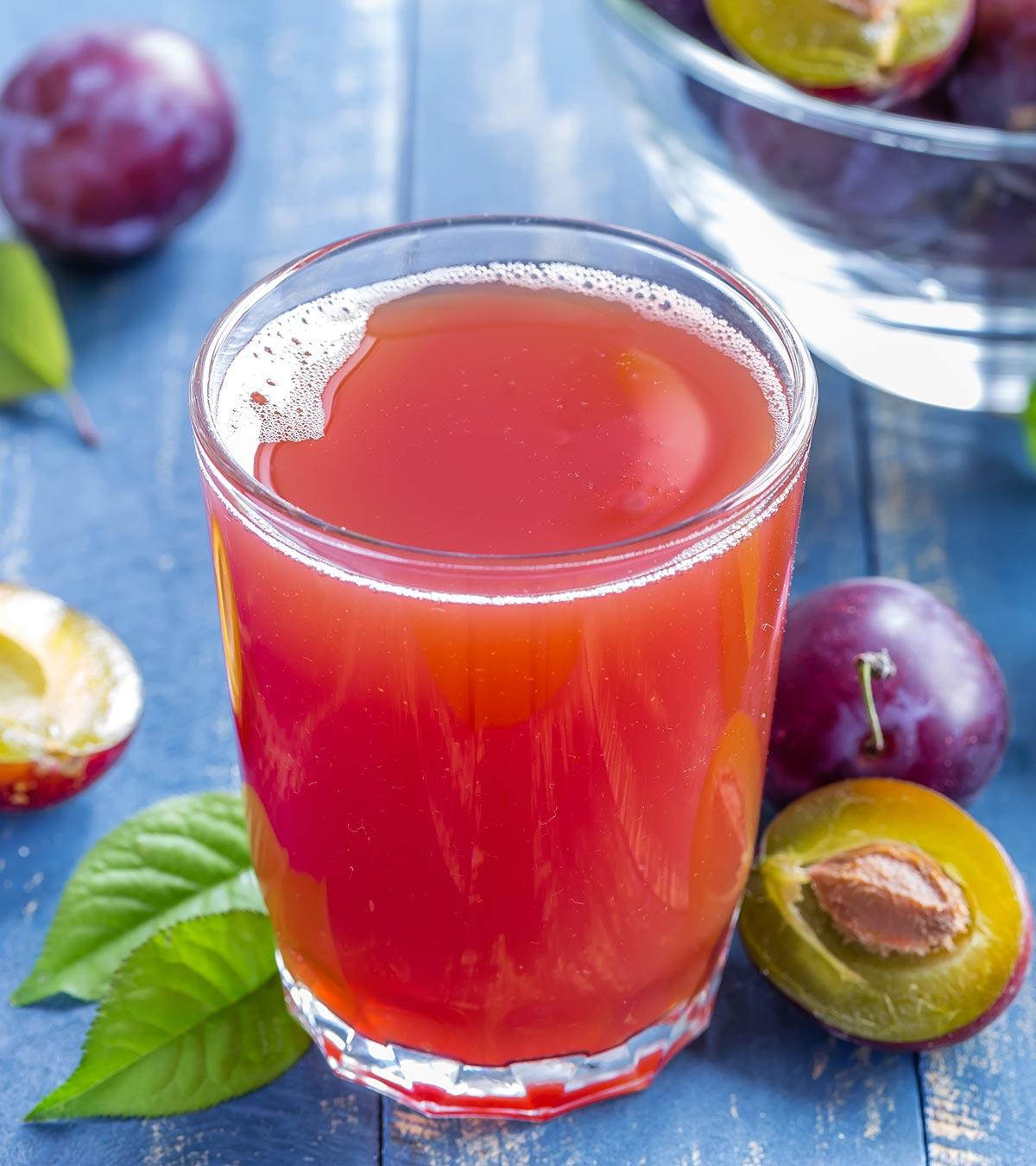Prune Juice For Constipation
Prune juice may help relieve constipation, especially in children. The whole fruit, though, seems to be more effective. Start with one serving (half a cup) of prune juice per day and see how your body reacts. Increase the dosage if necessary. Another option is to eat.
ServingA recommended treatment for constipation is 50 g dried prunes twice daily. The 50 g serving equates to about seven medium-sized prunes. This treatment has been shown to be better than a standard 11 g dose of psyllium taken twice a day. Prunes produce more spontaneous bowel movements weekly and better stool consistency, according to A. Attaluri, lead author of the study in “Alimentary Pharmacology and Therapeutics.' Prunes and psyllium are equally well tolerated, Attaluri notes.
FiberThe dietary fiber in prunes is partly responsible for their laxative effect, according to “Nutrition and Health” by Eugene A. The amounts in Attaluri’s study, 50 g prunes and 11 g psyllium, provide equal amounts of fiber – about 6 g. However, the skin of prunes also contains a chemical substance called dihydrophenylisatin that is a gentle stimulant laxative, DeFelice notes. Prunes also contain sorbitol, a sugar alcohol that draws water from the intestine and helps produce their laxative effect. FluidIncrease your fluid intake as you increase your fiber intake with prunes.
The University of Iowa recommends at least 8 cups of fluid daily. Drinking water and other liquids adds fluid to your colon. This helps bulk your stools and makes your bowel movements softer as well as easier to pass.
You actually raise your risk for constipation if you increase fiber but do not take in enough fluids, advises Dr. William Sears, associate clinical professor of pediatrics at the University of California Irvine School of Medicine. JuiceIf you do not want to consume prunes, you may use prune juice to combat constipation. An adult dose is one-half cup prune juice. For babies and children, consult a physician. The usual advice for babies is 1 to 2 oz. Prune juice, according to PubMed Health.
Swarm Queen Ravna is a unique creature that can be found in the final sub-area of the,. Killing her is necessary to complete the quest.The entire room is filled with eggs ready to hatch Weavils.The Boss fight is divided in two stages:1.) Ravna is immobile at first, attached to her abdomen, summoning Dermapterans to fight the player and attacking with poison projectiles.2.) Once her health bar is fully depleted, Ravna detaches herself from her abdomen, becoming mobile and pursuing the player with melee attacks.Family:Genus. Baron von games swarm queen playlist.
Your grandmother’s remedy for constipation – prunes – is still an effective remedy today. In fact, prunes may work better for alleviating this condition than fiber supplements like psyllium, according to a study reported in April 2011 in “Alimentary Pharmacology and Therapeutics.' This treatment has been shown to be better than a standard 11 g dose of psyllium taken twice a day.

Prunes also contain sorbitol, a sugar alcohol that draws water from the intestine and helps produce their laxative effect. Drinking water and other liquids adds fluid to your colon. Ice age arctic blast 2016.

If your newborn seems constipated, contact his or her doctor for advice. But keep in mind that the normal amount of bowel movements an infant passes varies depending on his or her age and what he or she is eating. Infants also have weak abdominal muscles and often strain during bowel movements. Infant constipation is unlikely if your baby passes a soft bowel movement after a few minutes of straining.Infant constipation often begins when a baby starts eating solid foods. If your baby seems constipated, consider simple dietary changes:. Water or fruit juice. Offer your baby a small amount of water or a daily serving of 100 percent apple, prune or pear juice in addition to usual feedings.
These juices contain sorbitol, a sweetener that acts like a laxative. Start with 2 to 4 ounces (about 60 to 120 milliliters), and experiment to determine whether your baby needs more or less. Baby food. If your baby is eating solid foods, try pureed peas or prunes, which contain more fiber than other fruits and vegetables. Offer whole wheat, barley or multigrain cereals, which contain more fiber than rice cereal.If your baby is struggling, it's been a few days since his or her last bowel movement, and dietary changes haven't been effective, it might help to place an infant glycerin suppository into your baby's anus. However, glycerin suppositories are only meant for occasional use.
Don't use mineral oil, stimulant laxatives or enemas to treat infant constipation.Rarely, infant constipation is caused by an underlying condition, such as Hirschsprung's disease, hypothyroidism or cystic fibrosis. If infant constipation persists despite dietary changes or is accompanied by other signs or symptoms — such as vomiting or weakness — contact your baby's doctor. Functional constipation in infants and children: Clinical features and differential diagnosis. Accessed Nov.
21, 2016. Sood MR. Prevention and treatment of acute constipation in infants and children.
Accessed Nov. 21, 2016. Jana LA, et al. Poop happens. In: Heading Home With Your Newborn: From Birth to Reality. Elk Grove Village, Ill.: American Academy of Pediatrics; 2015. Shelov SP, et al.
Abdominal/gastrointestinal tract. In: Caring for Your Baby and Young Child: Birth to Age 5. New York, N.Y.: Bantam Books; 2014.